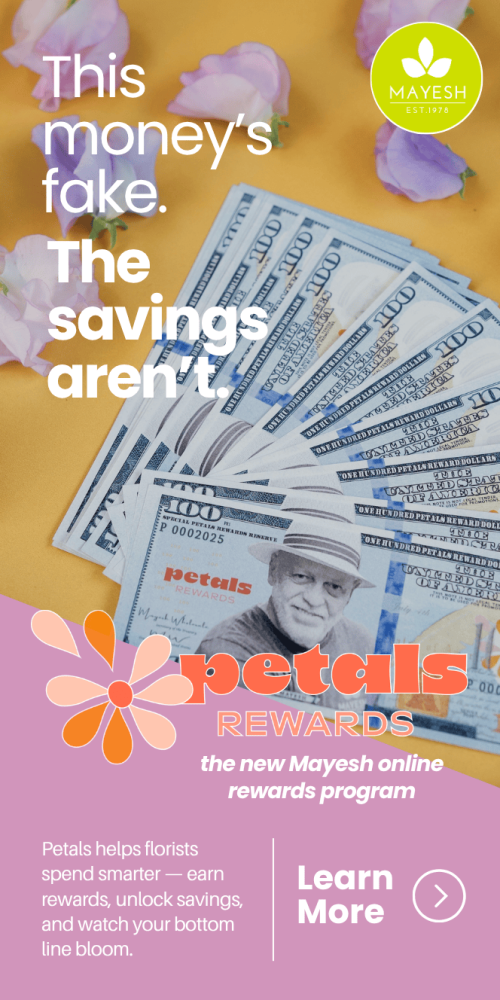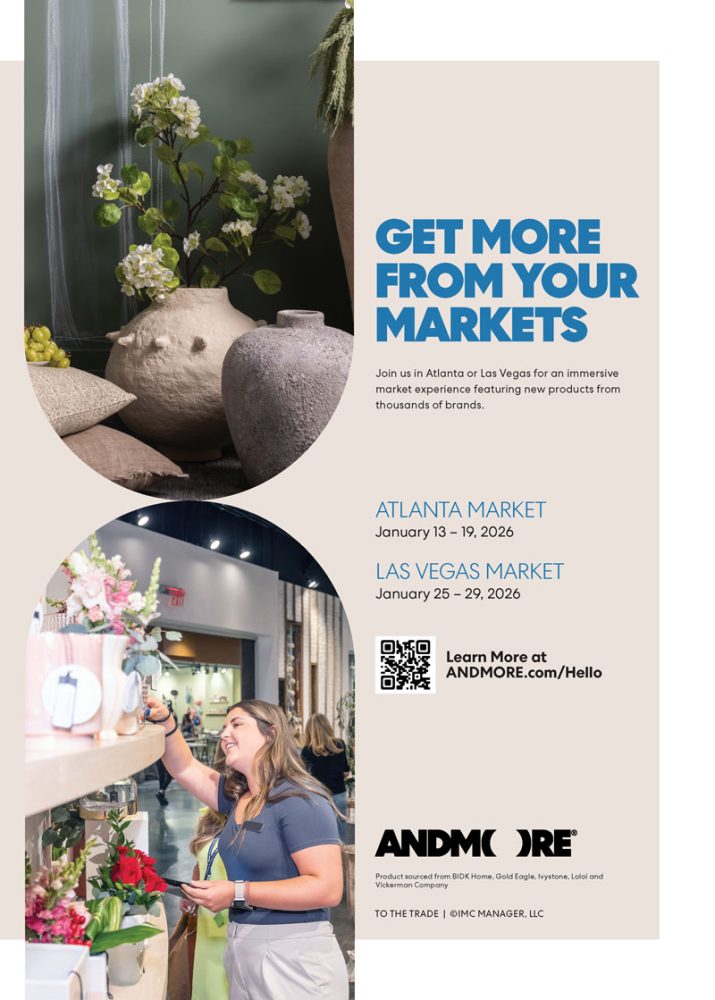"I was in a local supermarket this morning and it was surprising [to me] how many people picked up a bunch of flowers," says Catherine Foxwell , a freelance florist based in London. "I was standing there and I thought, wow – it’s obviously bringing people so much joy and pleasure at this moment in time… People really do want beauty and something nice to look at in their homes at a time of crisis."
Catherine has been working in flowers for six years, and a love of and even need for flowers is part of her daily life. But she’s not seen it reflected quite so obviously by the public before. Since lockdown began, you may have noticed it too: the floral section of your local supermarket is never without someone browsing (while wearing a face mask, of course). Online, blooming peonies fill Instagram feeds and people share pictures of the blossoms and wildflowers spotted on a walk. People are buying expensive bouquets to send to loved ones or cheap and cheerful carnations from their local Tesco to brighten a corner in their home. Google Trends shows that searches for ‘online florists’ in the UK are up 42% in the past 12 months, while searches for ‘florist near me’ are up 140% and ‘order flowers online’ are up 60%. As we sit inside, separated from the world around us, the superfluous, ephemeral beauty of flowers has become an integral part of how we cope with Right Now. Photograph taken during the coronavirus pandemic by Jasmine Clarke, other photographs by Paula Codoner, Joanna Cresswell and florist Harriet Slaughter (@boldoxlip). Black and white photograph of women picking flowers for market during World War II.
The history of the floral industry and flower arranging is interwoven with a desire to surround ourselves with beautiful things, particularly at times of crisis. Since ancient Egypt, floral arrangements have been part of funerals , celebrations and decorations, and were integral to spaces of worship and peace of churches in the Baroque period in the UK. They were even thought to have a medicinal quality. During the Georgian period in Britain the ‘miasma theory’ of disease (a school of thought that suggested diseases travelled through smells) meant that handheld, loose arrangements of flowers were a popular way to carry around ‘protection’ – their scents were thought to protect you from disease. Later, during World War I, when food shortages contributed to a debate over whether growing flowers instead of food was necessary or superfluous, the Sutton & Sons 1918 catalogue concluded: "In the earlier days of war, flowers were almost regarded as an unnecessary luxury, but the lack of them has served to show how invaluable they are in these times."
This pull towards flowers during times of crisis has led to an uptick in sales and deliveries for online and independent florists. John Hackett is the managing director for Arena Flowers (the UK’s number one rated ethical florist, according to the Ethical Company Index) and told R29 […]
Source: We Turn To Flowers In Times Of Trouble – But The Industry Has Troubles Of Its Own























